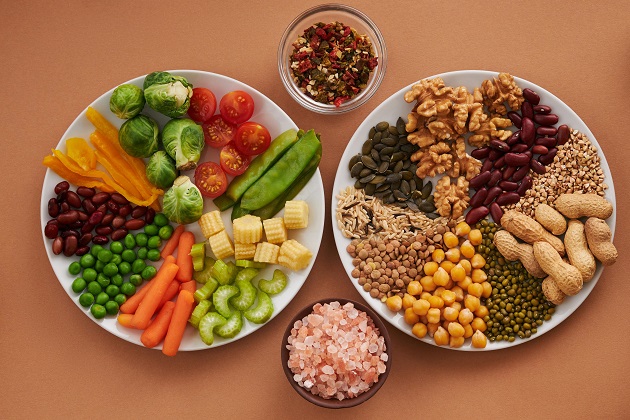Portion Control Tips to Maintain a Healthy Weight
It’s always a good idea to keep an eye on your weight to make sure you stay within a healthy range. Watching your weight can help you prevent and control a whole range of diseases and conditions. There are many factors that contribute to a healthy weight, including your surroundings, genetic make-up and family health history, your metabolism as well as your behaviour and habits. However, what has the biggest effect is how much and what you eat.
For example, eating foods high in fat and sugar as well as eating much larger portion sizes than you need will make you more likely to gain weight. This can lead to a higher risk of developing several health conditions, including heart disease, diabetes and cancer. That’s why it’s worth thinking about what and how much you eat as well as how much physically active you are.
Building a Healthy and Balanced Diet

Eating a healthy, balanced diet means eating a wide variety of foods in the right proportions and getting a wide range of nutrients, vitamins and minerals essential to your body to be healthy and function correctly. Without balanced nutrition, your body is more prone to infections and diseases.
Eating a balanced diet also means fueling your body with the number of calories it needs to function. Calories are a measure of the energy that foods supply. The energy balance is important for maintaining a healthy weight. Most people eat and drink too many calories which is not good for their health. That’s why knowing the optimal number of calories you should intake on a daily basis is important. It will help you achieve and maintain a balance by consuming the right amount of food and drink. Of course, the number of calories you need will depend on your sex, age, and activity level.
To get the nutrition you need, your daily calories should mainly come from the five main food groups: starch, fruits and vegetables, proteins, dairy and healthy fats. You should limit the empty calories and opt for wholegrain, less processed foods with less added fat, salt or sugar. For example, when you are craving for snacking, opt for some healthy protein snacks or fruits and vegetables.
It’s recommended that you eat at least 5 portions of a variety of fruit and vegetables every day as they are a good source of vitamins and minerals, and fibre. You can buy a portion size plate to make sure you get the right amount of plant nutrients. Adding plant fibre to your diet can help curb your hunger.
It’s also recommended that you include healthy, wholegrain starchy foods at every meal. Starchy foods are the most important source of energy so they should make up just over a third of your diet. This will help you to get enough fibre, and feel fuller for longer.
Also, make sure you include moderate amounts of protein in your diet. Proteins like meat, fish, beans, eggs and other non-dairy proteins are very important for your body because they’re involved in growth and repair. Two or three portions throughout the day should be enough to give you what you need. Milk and dairy foods are also good sources of protein. What’s more, they contain calcium which is good for the bones.
Proper Portion Control

Maintaining effective portion control is very important, especially if you want to lose weight. By controlling what foods you are eating, you can easily lose weight and also keep your weight off. But it’s not just what you eat, it’s also how much you eat. In other words, plate size matters. Although research shows that there is no consistent effect of plate size on food intake, getting an adequate portion size plate could be key to weight loss.
Recognising the recommended serving size of food or maximum intake will help you manage your weight effectively. Using a healthy eating portion control plate will allow you to better regulate your food intake and develop healthier diet habits. Thus, healthy eating will help you feel good about yourself and give you more energy to enjoy life.
Loading up your perfect food portion plate can be quite a challenging task since different people have different nutritional needs. Dietitians recommend filling half your plate with good variety of vegetables. A quarter of your plate should include carbohydrates such as potato, wholegrain pasta, brown rice, couscous, quinoa etc. And the remaining quarter of your plate should be filled with lean protein, like lean meat, poultry, eggs or legumes.
Basically, your healthy diet plate should include equal parts of lean protein, complex carbohydrates, and fibrous veggies topped off with a slice of healthy fat. And in addition to your balanced meals, you may consider getting supplements for strengthening your immunity.